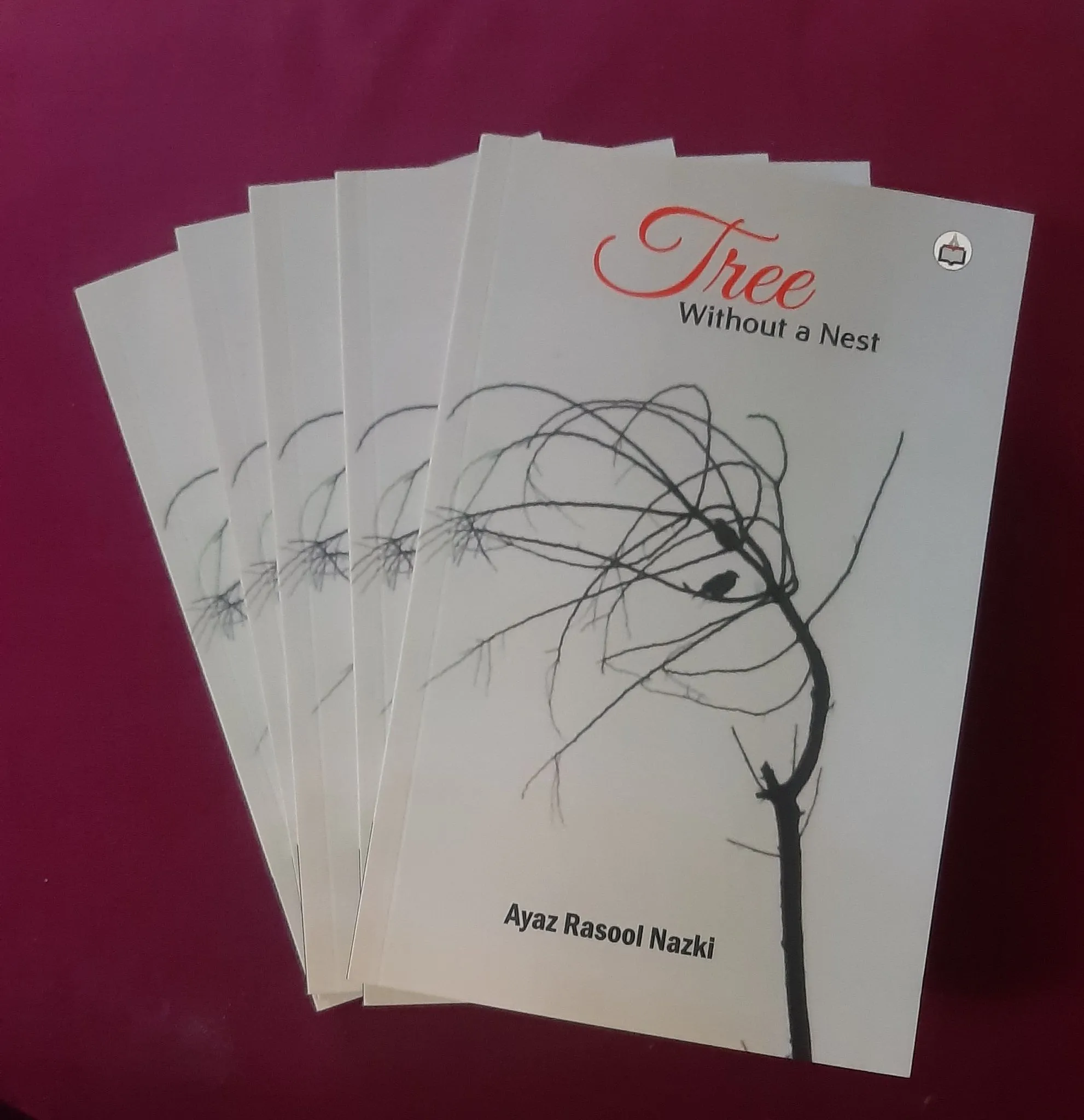When the crescent is born
It grows every night
and is the full moon by fourteen
you were a crescent my boy
you went down at fourteen
Living in the conflict-sensitive areas germinates a different type of poetry – the poetry of distress – powerful enough to convey the collective traumatic experiences of people, and their deep desire for peaceful living. It carries shades of prison poetry as well, for the fact that people live in the state of captivity as a way of life, bearing the frustration of persistent confinement- periods with added spells of mourning, resulting from frequent deaths and destruction. Under such conditions, intellectual and creative exuberance face considerable challenges and, the theme of literature shifts drastically. With prolonged miserable conditions, the literature of such areas becomes a mirror of circumstances and poets and writers its fair and square reflectors.
Ayaz Rasool Nazki’s latest collection of poems is intense and fearless and, with a difference, for it holds in it the essence and tone of life and living as the main ingredient making it not a mere show of violence peculiar to conflict zone literature. Suffering from hostile and depressing living, he hopefully keeps the beat of life alive under acute fear psychosis and the stony silence of death, absorbing the pain of unavoidable tragedies he warns.
I will pelt stones tonight
but not on you
but on ghosts
who frighten me
in the dead of night
who wants to
take me away
into valley of death
and bury me alive
in a grave
among graves
of anonymous men
whose families
still await their return
Nazki’s poetry is a series of four, six, eight, and more stanzas, there is no set rhythm pattern and most of the poems go off rhythm, he is free from strict rules, thus exemplifying modern free verse. Tree Without a Nest is a beautiful tapestry of sorrow and gloom, pain and anguish, melancholy and despondency, optimism and aspiration, love and romance, thought and action, and it carries geopolitical dimensions and biosphere concerns; with the use of simple language and striking images, it creates a resonant effect and makes the piece of literature an interesting contribution to the contemporary poetry of our times. His ambiguities are significant and induce interpretation even if they are not direct, making his style fresh and pellucid.
He feels tormented and restless seeing the surroundings that have become overt and widespread in the society and work on divide and rule policy to sustain power by exploiting coordination problems among potential rivals. He cries his heart out on territorial division and separation.
Come
let us divide
the sky tonight
half yours
and half mine
stars on this side be mine
stars on that be yours
let each be the king of the sky
till daybreak
when stars disappear
when the sun shines
how to divide the land
on which we stand
moving water and shifting sand
flying birds, fragrance drifting along
smoke rising from the chimney
bees hamming over the bush
light entering through the crevice
jingling bells, rising chants
hearty laughter, a sigh of relief
and tears shed in the silence of this night
Writes Gopal Lahiri, a prolific writer, poet and critic, “Ayaz Rasool Nazki has a mode of using what could be mundane subjects in an unusual mean. The poet’s voice –and the world it carries in it-has so often been submerged beneath layers of meaning and yet rarely been muffled into silence. Most of his poems delight or provoke in some way or the other and are filled with sobering thoughts on injustice, determination and redemption.”
I will sing a lullaby tonight
and lull my senses
to sleep
I will keep an angel’s vigil
and guide my soul
into the deep
I will burn my body
and collect my ashes
into a heap
scatter them atop
the hills of faith
across the meadows of belief
not a speck
shall I keep
His self-talk, imports both positive and negative attributes and qualifies for superb art of identification; with ebb and flow of expression, his poetry is spontaneous and, transmits a tremendous cosmic effect with intriguing rustic flavor creating a typical climate for the reader to enjoy. In his self-talk, he sounds drawn into the philosophy of life and death with deep shades of loneliness.
when you come next time
I won’t be around
spring breeze
the muse in me
narcissus and tulips
would have bloomed and disappeared
when you come next time
I won’t be around
chirping birds on my lawn
and the songs on my lips
would have flown to unknown lands
when you come next time
I won’t be around.
Nazki is a bilingual poet. With poetry in his blood, he emerges from a sensitive awareness of his surroundings, writes his poems on falling leaves with a drop of dew on a rose. Deeply rooted in his idyllic persona, is a dreamer, a star-gazer; with poems, “Till snow melts, Lie next to me, She and me, I could smell fresh henna on her hand, he captivates his reader in an idealist’s frame to enjoy his poems carried in “Tree without Nest.”
one day
I will while holding your hand
go into the
lush green meadows of tomorrow
and collect
a basketful of wildflowers
and strew them
one by one into your hair
and sitting by a brook
with glistening pebbles
tell you stories of happier times
when the prince rode a white steed
in the saffron fields
and met the dame of his dreams
one day!






